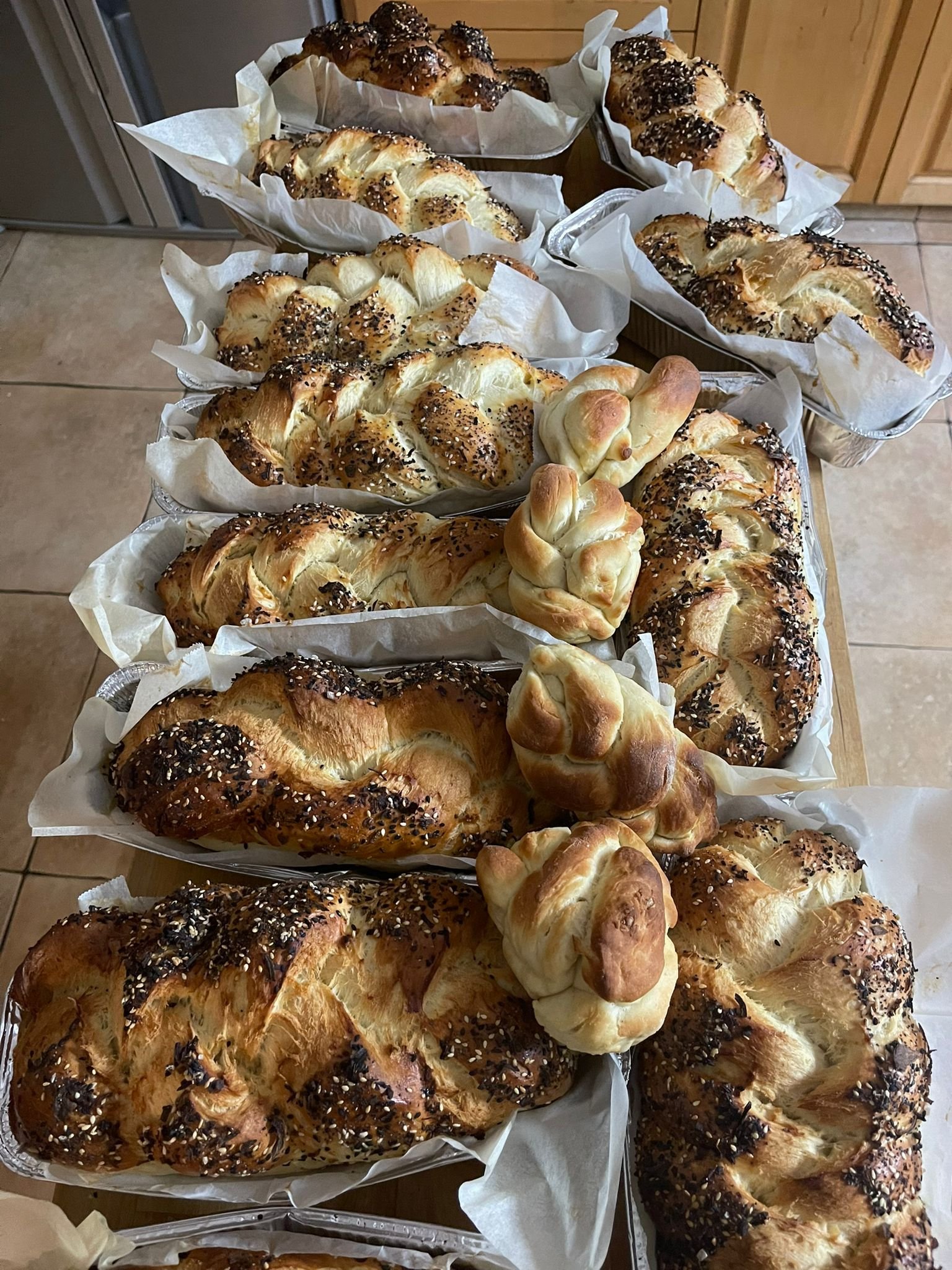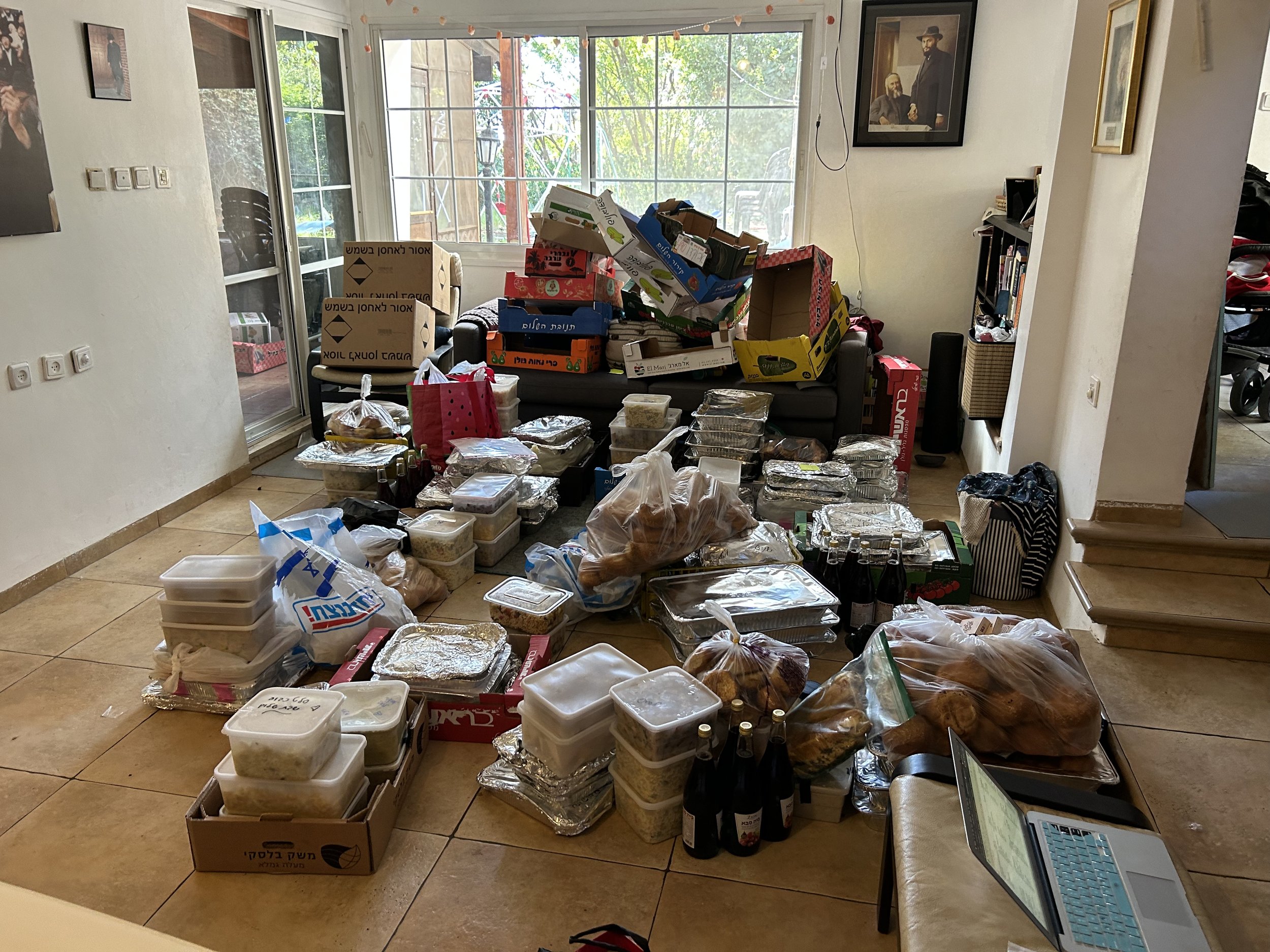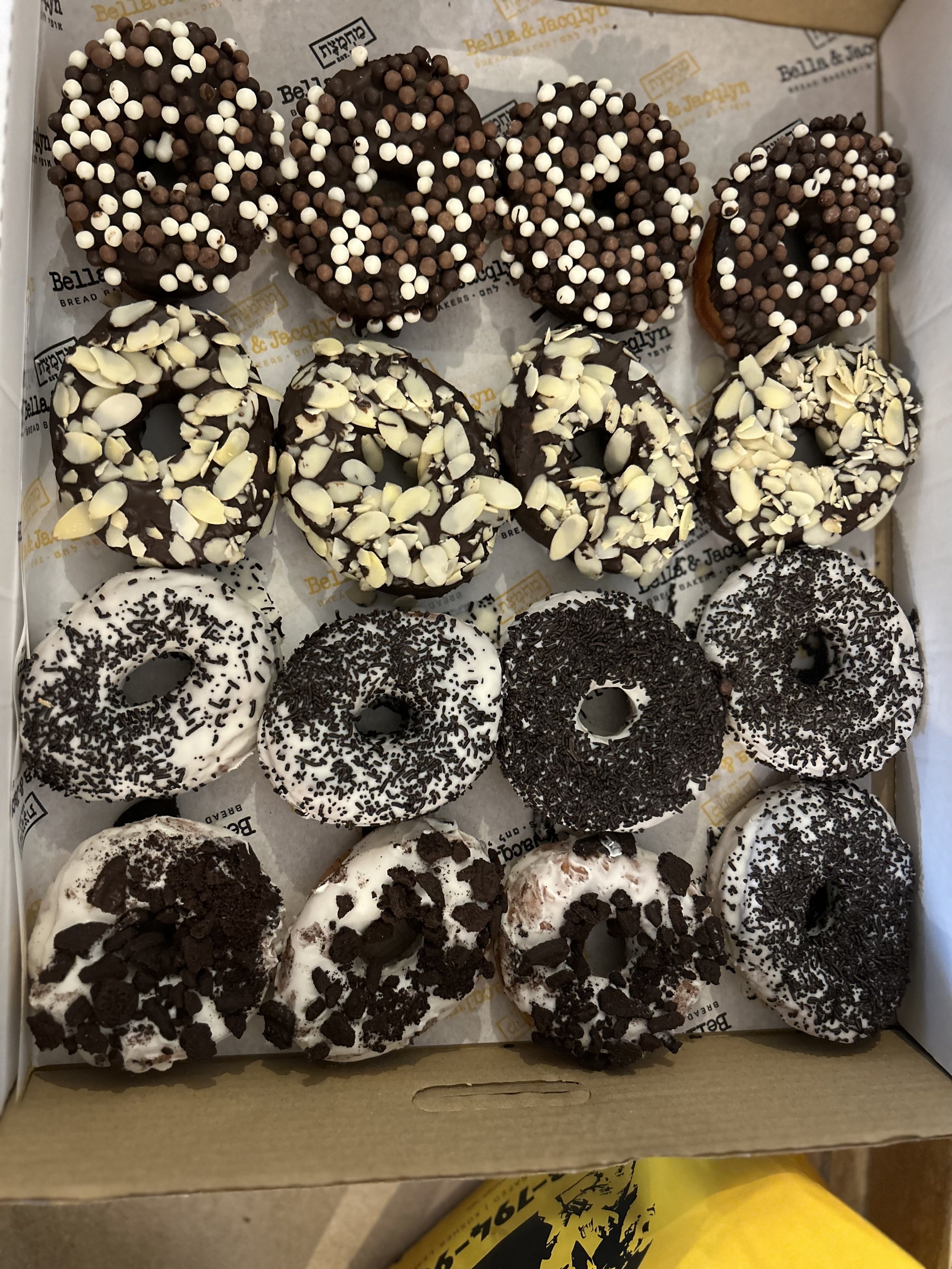Interview with Yehudis Hoffman
Interview with Yehudis Hoffman
Culinary activist
"Future chefs should understand that being an activist in the culinary realm means actively seeking out opportunities to contribute. "
Yehudis Hoffman is the wife of Nathan's Galilee Culinary Institute CEO, and she has taken on an honorable initiative to provide Shabbat meals for soldiers in the northern part of Israel. Since the war began, she has been preparing and delivering 1000+ meals each week, bringing a taste of home to soldiers in the Galilee region, Kyrat Shmona, the Chermon, and various bases around Tzfat. What began as a response to the urgent need for Mehadrin kosher-certified meals evolved into a broader effort to ensure that all soldiers experience the warmth of a home-cooked meal. Yehudis coordinates volunteers and community members to contribute to the menu, from hummus and challah to matbucha, ensuring that even those with dietary restrictions like gluten-free or vegan preferences receive thoughtful and nourishing meals. Most of this operation takes place in her home, embodying the spirit of community and commitment to enhancing the Shabbat experience for those serving in the military.
1. Could you tell us how your initiative to provide Shabbat meals to soldiers in the North of Israel came about? Can you tell us what motivated you to take on this impactful endeavor and how it has evolved over time?
The journey of providing Shabbat meals to soldiers in the North of Israel began when the chaos of war set in, and reserves were hastily called in, leaving the army struggling to get organized. Feeling the urgency to address the immediate needs of hungry soldiers, I joined a group of volunteers in Tzfat, determined to make a difference.
The turning point came when a friend, in touch with various bases to assess their specific needs, shared the desperate situation of 30 mehadrin-eating soldiers surviving on canned tuna. They needed Shabbat food. Without hesitation, I rallied a group of local ladies to cook and sent home cooked Shabbat dinner and lunch for these soldiers. It was a small gesture with a big impact.
As the days unfolded, the need grew. I found myself diving into fundraising efforts and utilizing the local community of amazing women to help with manpower and cooking, ensuring that soldiers, especially those adhering to kosher dietary laws, had more than just sustenance—they had delicious, comforting meals.
The initiative wasn't just about kosher requirements; it was about ensuring that EVERY soldier, regardless of their level of observance, can experience the warmth of a home-cooked Shabbat meal. What began as a response to an immediate need transformed into a personal mission.
The motivation behind this initiative goes beyond providing meals; it's rooted in a deep sense of needing to do something and make a contribution in a way that I am able to. I’ve been in the kitchen cooking for Shabbat as long as I can remember. Nathan and I love hosting for Shabbat and Holidays, so I figured I’d put my cooking skills and my ability to manage people to good use! Every week we send Shabbat dinner and lunch to around 450+ soldiers spread around 6-8 groups in the North of Israel. It's my way of supporting and motivating our heroes on the front lines, ensuring they have the sustenance and encouragement they need to keep going.
2. Preparing 1000+ meals a week for soldiers requires a lot of work and organization. How do you handle a task like this, such as organizing volunteers and ensuring the menu caters to various dietary needs?
In the heart of my incredible community, where people generously offer their time and energy, we've embarked on the task of preparing 1000+ meals each week for our soldiers. Making this happen involves a blend of community spirit, tech tools, and meticulous planning.
PerfectPotluck has become our virtual kitchen hub. This website allows me to craft a detailed menu, specify quantities, and give essential instructions. It's not just a tool; it's a connection point where volunteers can seamlessly sign up, making the entire process a collective effort. Then I organize all the signups and quantities according to the groups we are sending the food to.
Communication is the key, so I've set up a WhatsApp chat with the amazing women in my community who share the passion for cooking for our soldiers. It's more than just a group chat; it's a virtual kitchen where we exchange ideas, updates, and a sense of camaraderie.
Funding is a challenge, and I've turned to my friends and family, especially those in the States, for support (or click here). The financial backing is critical to keeping the initiative running. In order to keep cooking for this amount of people sustainable, I make sure to reimburse the women for the ingredients they purchase or, I purchase the ingredients myself and drop it off for others to cook. (It would take me 3 hours+ just to cook 30 fillets of salmon, so I cook 12 and drop off the rest at a bunch of other homes to be cooked there).
Crafting the weekly menu is a labor of love. I'm meticulous about considering every dietary need – vegan, gluten-free, you name it. The goal is simple: every soldier deserves a Shabbat meal that suits their preferences and restrictions.
This initiative is more than just a logistical feat. It's a personal commitment to our soldiers, a collective effort fueled by community, technology, and a deep respect for the diverse needs of those we aim to support.
3. Your initiative combines culinary expertise with community impact. How does your project's community-driven approach align with the Galilee Culinary Institute's educational mission? How can students from the institute contribute to or learn from your unique approach to community engagement?
The Galilee Culinary Institute's (GCI) focus on activism and community involvement aligns with the community-driven approach of my initiative. Students at GCI can contribute by identifying needs and leveraging their strengths and passions for community impact. Whether through cooking, organizing events, or creative solutions, students have the chance to make a tangible difference.
My initiative offers valuable learning experiences for GCI students, encompassing logistical and organizational aspects of managing a large-scale community project. From menu planning to coordinating volunteers and fundraising, students can gain insights into effective project management and community engagement.
Participation in initiatives like mine enables GCI students to see the transformative power of food beyond the kitchen, fostering a sense of community and support. It provides a holistic approach to culinary education, connecting their passion for food with a commitment to social impact and community service.
4. We emphasize various culinary personae at Galilee Culinary Institute, including "Activist." Considering your experience providing meals to soldiers, what insights can you share with future chefs regarding the "Activist" role and its significance in culinary practices?
Embracing the role of an "Activist" in the culinary world involves recognizing and leveraging your individual strengths. In my experience providing meals to soldiers, I've found that focusing on what you're good at and what you enjoy is pivotal. For me, combining my leadership skills—honed as the Director of a non-profit organization for kids with special needs—with my passion for hosting Shabbat meals has been the key to realizing this mission.
As an activist chef, it's about more than just cooking; it's about finding a need in the community and using your talents and skills to make a meaningful contribution. Identifying your unique strengths allows you to build a team around you, creating a support system that helps bring your culinary vision and aspirations to life.
Future chefs should understand that being an activist in the culinary realm means actively seeking out opportunities to contribute. It's not just about preparing food; it's about addressing a need in the community and utilizing your culinary talents to make a positive impact. By aligning your passions with your skills, you can create a powerful recipe for community engagement and social change.
5. What is a fun culinary fact about you?
I can cook, but I’m probably the only human who can screw up a Duncan Hines Brownie recipe. I make really good challah, and that’s pretty much where my baking expertise stops.
If interested in donating to this beautiful cause, click HERE.




